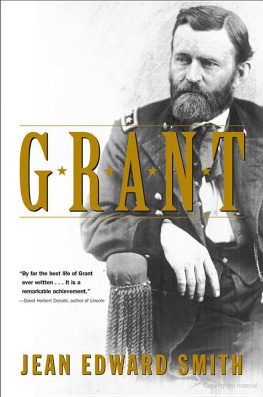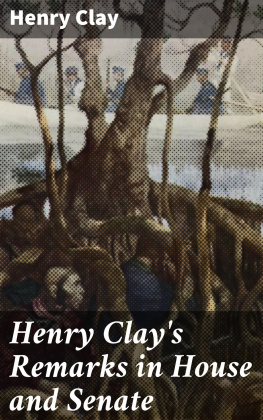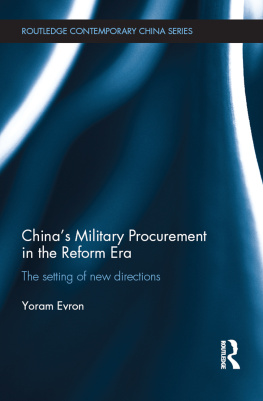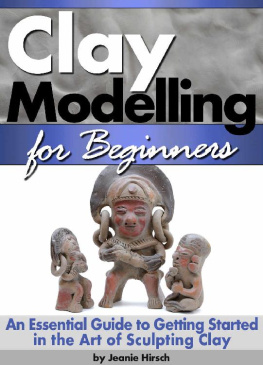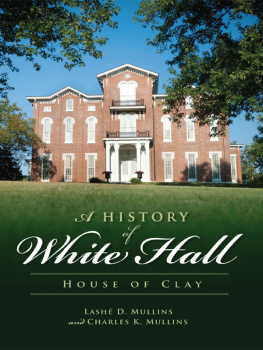
First Lieutenant Clay as an instructor, West Point, 1925.

The author and publisher have provided this e-book to you for your personal use only. You may not make this e-book publicly available in any way. Copyright infringement is against the law. If you believe the copy of this e-book you are reading infringes on the authors copyright, please notify the publisher at: us.macmillanusa.com/piracy.
CONTENTS
FOR CHRISTINE
PREFACE
Lucius D. Clay headed the American occupation of Germany from 1945 to 1949, first as deputy to General Dwight D. Eisenhower, eventually as U.S. supreme commander in his own right. Under Clays stern tutelage, western Germany emerged from the shadow of Nazi tyranny. Under his leadership, a devastated country was rebuilt, an economy restored, and the foundations laid for a prosperous, stable, and democratic government. As Clays successor, John J. McCloy, once remarked, the Federal Republic is largely the story of the courage and persistence of this remarkable man.
For many, Clay is best remembered as the father of the Berlin airliftthat dramatic response to the Russian blockade in 1948. But the airlift distorts Clays role in Germany. He was not a militant cold warrior, and the attention devoted to the blockade obscures the more fundamental and enduring accomplishments of the Occupation, accomplishments due directly to Clays farsighted and fair-minded governance.
Clays four years in Germany may have been the most demanding period in his career, yet they are but a small part of the sixty years he devoted to public service. Indeed, his full life reached and touched many of this centurys most momentous and threatening events, and he himself was shaped by the tasks entrusted to him. He honed his impressive political skills in New Deal Washington; he developed his planning and engineering abilities while building dams and airports in Depression-wracked America; he established his reputation as a chaos-into-order man of global standing when he headed American military procurement during World War II. And through all of this, including the four years in Germany as Americas proconsulwith all the power and the privilege consequent upon that positionthere was never a breath of scandal or a hint of impropriety. Sixty years dedicated to the public well-being without a dent on a reputation for probity and rectitude: Clay represents a particular type of American, one that, sadly, seems less in evidence as the century winds down.
Clay retired from the Army in 1949 and went on to make a successful career in business, though he consistently refused to work for defense contractors or to conduct any business with the Pentagon. He participated actively in politics, playing a pivotal role in Eisenhowers 1952 campaign, and then helping Ike to select his first Cabinet. But Clays politics were essentially nonpartisan. He pioneered the interstate highway program for a Republican president, but returned to Berlin in 1961 as the special envoy of a Democratic president. He helped rebuild the Republican Party financially after the Goldwater defeat, but also provided the money for President Kennedy to ransom the prisoners of the Bay of Pigs. Throughout his long years of service, Clay remained faithful to an American tradition of honesty, independence, and straight-dealing. He was tough and decisive, and he never trimmed his sails to suit a prevailing wind. His integrity was as enduring as his resolve.
General Clay died in 1978, six days shy of his eightieth birthday. Some years before his death, he agreed to a series of interviews with me. In the end, the interviews extended over six years and some twenty-five hundred pages of transcript. He patiently answered every questionalways candid, always precise. His extraordinary memory could recall cables twenty-five years old, almost verbatim. No detail was too small to be filed away in his recollection.
General Clay also made his personal papers available to me. The truth is, this was not as helpful as it might sound, because, unlike so many government officials, Clay took no records with him when he left public service. He deposited his official papers in the National Archives, where he believed they belonged. When I sought to use those papers, the Department of Defense resisted, claiming many were still classified. Clay could not understand how documents thirty years old could have any possible bearing on national security, and he intervened directly with the Secretary of Defense to force their declassification.
General Clays papers as Military Governor were edited by me and published by Indiana University Press. My interviews with him are on file and available to scholars at the Oral History Research Office at Columbia University and at the Eisenhower Library. The biography that follows is drawn insofar as possible from the words and opinions expressed by General Clay. In order to capture the essence of Clays thoughts as well as his style and manner, I have frequently quoted his answers to my questions directly. By so doing, the portrait that emerges is, I believe, both more accurate and more candid.
General Clay read the first twenty-five chapters of the manuscript in draft form. As was his way, he offered no suggestions or criticisms, except to query jokingly whether I really had to specify his exact birthday. (Clay had lied about his age to gain early admission to West Point.) It is a measure of the man, I believe, that throughout our relationship he encouraged me to probe deeply and write fairly, regardless of the consequences.
Jean Edward Smith
Berlin, 1989
Introduction
Lucius Clay represents the fiery type of fellow that you see in old-fashioned movies like Gone with the Wind. Hes the kind of military leader the Confederate Army produced in goodly numbers. They were proud people. They werent wild entirely, but they werent afraid of anything.
Robert A. Lovett
The American military tradition claims a variety of heroes. First, the demigods of martial spirit: Lee, Pershing, and MacArthur. Then the citizen-commanders, Grant and Eisenhowermen whose military judgment transcended narrow professionalism. Fighting generals like Patton and Stilwell, or Stonewall Jackson and William Tecumseh Sherman, compete for place with generations of military administrators: George C. Marshall, Peyton March in World War I, or Henry W. Halleck during the Civil War.
Lucius Clay fits none of those categories. His austere Roman bearing during the Berlin blockade may have resembled the aplomb of Lee outside Richmond, or the remoteness of MacArthur, yet he lacked the theatrical impulse that drove both to center stage. His executive ability rivaled that of General Marshall, but he lacked Marshalls single-minded military presence. Perhaps he most resembled Grant and Eisenhower, yet Clay never held a wartime command. Both Grant and Eisenhower were rewarded for their victories with the highest office the nation could bestow. Clay, who was relatively unknown outside Washington when World War II ended, was thrust into the desolation of a defeated Germany, and from the ashes fashioned the first stable democracy in German history.
Clays career is inextricably tied to postwar Germany: the occupation of a defeated nation, its rebirth and reshaping. And were this the sum total of his achievements, it would rank among the major accomplishments of the Second World War. Yet Clay was more than a military proconsul. He was, as John Kenneth Galbraith observed, one of the most skillful politicians ever to wear the uniform of the United States Army. In a military tradition little noted for its political insight, Lucius Clay stands as a unique figure. His selection to head Germanys occupation reflected a working relationship with the Roosevelt administration that was both close and of long standing.
Next page

